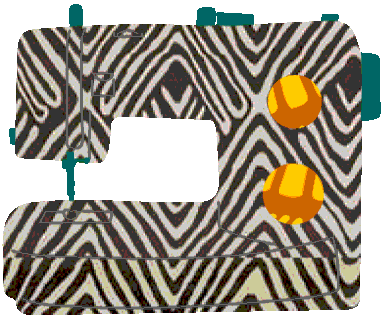Amaka Osakwe – The Nigerian Designer Celebrating Black Womanism & the Female Form
Recently named “West Africa’s most daring designer” by The New Yorker, Amaka Osakwe, has made quite a mark on the fashion world – and not just in her native Africa. Former First Lady, Michelle Obama, invited her to the White House along with Public School, Diane Von Furstenberg and a few other of her favourite designers, shortly after wearing a design by Osakwe on a visit to Johannesburg. And let’s face it – once the likes of Michelle Obama, Issa Rae and Beyoncé are wearing your designs, you know you’ve made it.
What unites the likes of Osakwe’s fashion designs and the above-mentioned women, is not only their passion for style, but their celebration of black womanhood and the female form. Osakwe discovered her love for fashion at an early age and often joined her mother to the Tejuosho market, where they would buy fabrics. She started out by making clothes for her dolls but soon graduated to making her own outfits after following a pattern-cutting class. During this era, R&B singer, Aaliyah, had established herself as a fashion role model, particularly for young, black women, so, naturally, Osakwe felt inspired to imitate the bandana tops the singer was famous for.
The prospect of Osakwe becoming a fashion designer, wasn’t one her family was particularly excited by – they wanted a traditional profession for her, a career in law or medicine, perhaps. When they finally agreed to allow her to follow a two-year course in Oxford, that prepared her for the world of business and clothes construction, Osakwe’s path slowly began forming. Surrounded by creative, international students at the fashion program at the Arts University Bournemouth, all of whom brought their own cultural heritage into their works, Osakwe felt inspired to elevate traditional adire fabrics through figure-flattering cuts, seductive details and motives designed to stimulate wordless conversations.
Osakwe launched her brand, Maki Oh, in 2010, and has made it her mission to challenge traditional norms still very much prevalent in Nigeria, through narrative pieces aimed at opening new fashion-focused and cultural conversations. Nigeria is still very much stuck on old-fashioned, sexist ideals that intimidate women into dressing modestly for fear of being scolded or otherwise disrespected. Maki Oh, thus, has found the perfect marriage between innocence and danger, humility and seduction.
Her first collection was inspired by a Ghanaian ritual known as dipo, which prepares young girls for the challenges of womanhood. This ritual is spread out over several days and sees the girls dressed in nothing but cloths and strips of raffia around their necks, and it is this look Osakwe wanted to imitate in her own collection. Burning calabashes - an important part of the dipo ritual – to create different shades of brown as a means to pay tribute to Nigerian skin tones, she sewed them on to gauzy blouses. Osakwe makes a point by adhering to adire motives – as opposed to the widely known Ankara fabrics which are often mistaken to be of African origin – and colour tones that complement black beauty when so many other designers prefer to play it safe – i.e. cater to the light-skinned masses.
Through her brand, Maki Oh, Amaka Osakwe is slowly changing our perception on West African fashion whilst empowering the women of Nigeria to celebrate black womanhood and the female form.
